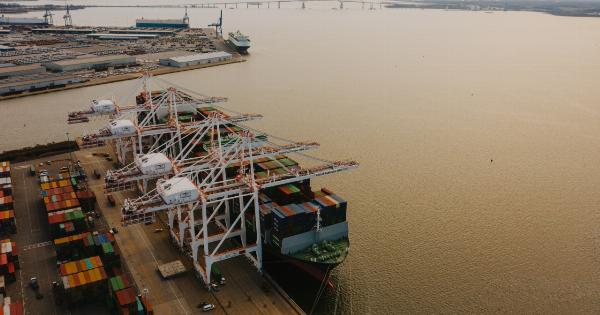Iron is one of the essential minerals required by the body for various functions, such as carrying oxygen in the blood, aiding in the formation of new cells, and maintaining the immune system.
During pregnancy, the demand for iron increases as the body is responsible for nourishing both mother and fetus. Inadequate iron levels during pregnancy can lead to severe complications for the mother and the baby. In this article, we will discuss the importance of iron during pregnancy and its effects on the mother and the baby.
Important Functions of Iron
Before discussing the importance of iron during pregnancy, it is crucial to understand the vital functions of iron. Here are some of the essential functions of iron:.
1. Oxygen Transport
Iron is a constituent of hemoglobin, a protein found in red blood cells. The primary function of hemoglobin is to carry oxygen from the lungs to other parts of the body.
Iron is also a constituent of myoglobin, a protein found in muscles that aids in the transport of oxygen to muscle tissues.
2. Formation of New Cells
Iron is essential for the formation of new cells, including red blood cells, which play an essential role in the body’s immune response. Iron also helps in the formation of DNA and other important molecules in the body.
3. Immune System Function
Iron plays a critical role in the functioning of the immune system. It helps in the production of white blood cells, which protect the body against infections. It also plays a role in the maintenance of skin health and repair of damaged tissues.
The Importance of Iron During Pregnancy
The demand for iron increases during pregnancy as the body is responsible for the formation of new blood vessels in the placenta, the growth of the fetus, and the formation of new red blood cells in the mother.
According to the World Health Organization (WHO), the daily recommended intake of iron for pregnant women is 27 milligrams. Here are some of the reasons why iron is essential during pregnancy:.
1. Prevention of Anemia
Anemia is a condition characterized by a low level of red blood cells in the body. It can lead to symptoms such as fatigue, weakness, and a reduced ability to fight infections. During pregnancy, iron deficiency is a common cause of anemia.
The lack of iron can affect the baby’s growth and development, leading to low birth weight and other complications. Adequate intake of iron during pregnancy can help prevent anemia in the mother and the baby.
2. Development of the Fetal Brain
Iron is essential for the development of the fetal brain. It aids in the formation of myelin, a substance that helps in the transmission of nerve signals.
Iron deficiency during pregnancy can lead to impaired cognitive development, including poor memory and attention, in the child. It can also increase the risk of behavioral problems and developmental delays. Adequate intake of iron during pregnancy can help ensure healthy fetal brain development.
3. Prevention of Preterm Delivery and Low Birth Weight
Inadequate intake of iron during pregnancy can increase the risk of preterm delivery and low birth weight.
Low birth weight increases the risk of infant mortality and other complications such as respiratory distress syndrome, vision problems, and developmental delays. Adequate intake of iron during pregnancy can help prevent preterm delivery and low birth weight, reducing the risk of adverse outcomes in the baby.
4. Prevention of Preeclampsia
Preeclampsia is a pregnancy complication characterized by high blood pressure and damage to organs such as the liver and kidneys. Iron deficiency during pregnancy can increase the risk of preeclampsia.
Adequate intake of iron during pregnancy can help reduce the risk of this complication.
5. Postpartum Recovery
During childbirth, the body loses blood, which can lead to iron deficiency. Adequate intake of iron during pregnancy can help ensure that the mother has adequate iron stores to aid in postpartum recovery.
Iron is essential for the production of milk, which provides vital nutrients to the baby during breastfeeding.
Conclusion
Iron is an essential mineral required for various functions in the body. During pregnancy, the demand for iron increases, and inadequate intake can lead to severe complications for the mother and the baby.
Pregnant women should aim to consume a diet rich in iron and consider taking iron supplements if necessary. Adequate intake of iron during pregnancy can help ensure healthy fetal development, prevent anemia, reduce the risk of preterm delivery and low birth weight, and aid in postpartum recovery.































